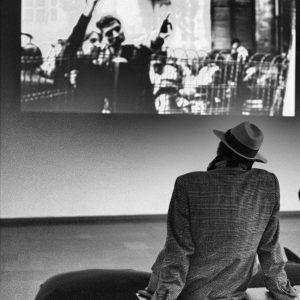Carole Desbarats at Eurozine:

In 1962, Lévi-Strauss published La Pensée Sauvage, the same year as two essential films: La Jetée and Le Joli Mai. Lévi-Strauss also puts forward a certain form of subjectivity when he states that the improviser does not ‘limit himself to accomplishing or carrying out, he “speaks”. Not only with things … but also by means of things: relating, through the choices that he makes between a limited range of things, the character and life of the author, without ever fulfilling his project, the improviser always puts into it something of himself.’ Concluding his reflection, Lévi-Strauss situates the artist midway between scientific knowledge and magical thinking.
At the start, Lévi-Strauss explains improvisation as being based on two absences: that of a plan completely set out in advance and that of a hierarchy in terms of the materials used. He contrasts improvisation with an engineer’s plan and attributes it to ‘savage’, or at least non-western thinking. Leaving this cultural dimension aside, let us concentrate on Lévi-Strauss’s celebration of a practice often denigrated by those for whom only organized, rational procedures are worthy of interest.
more here.
